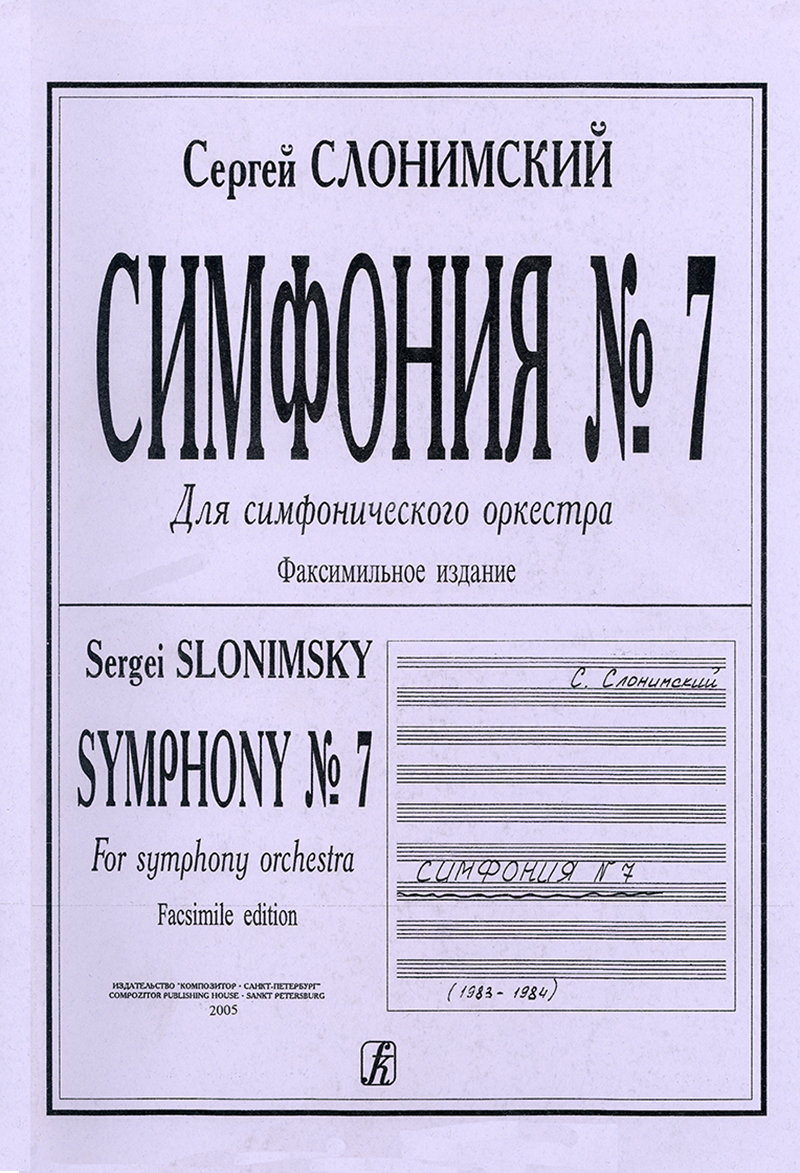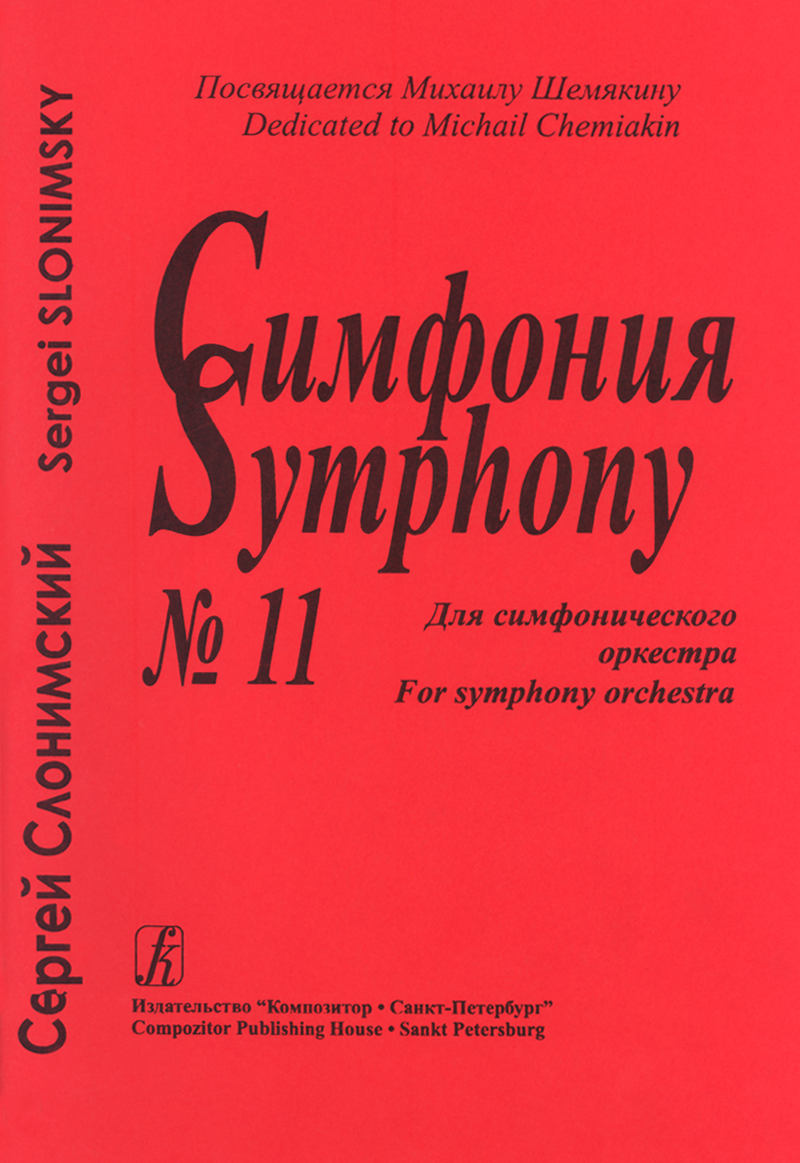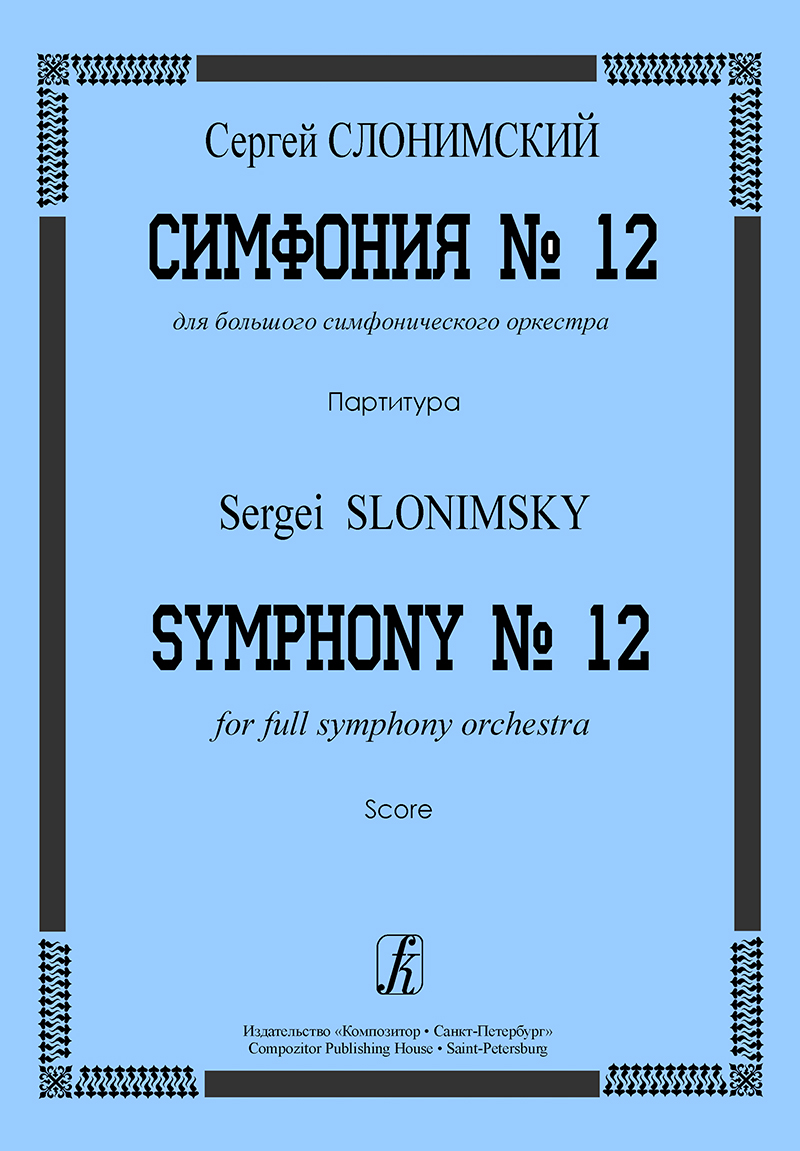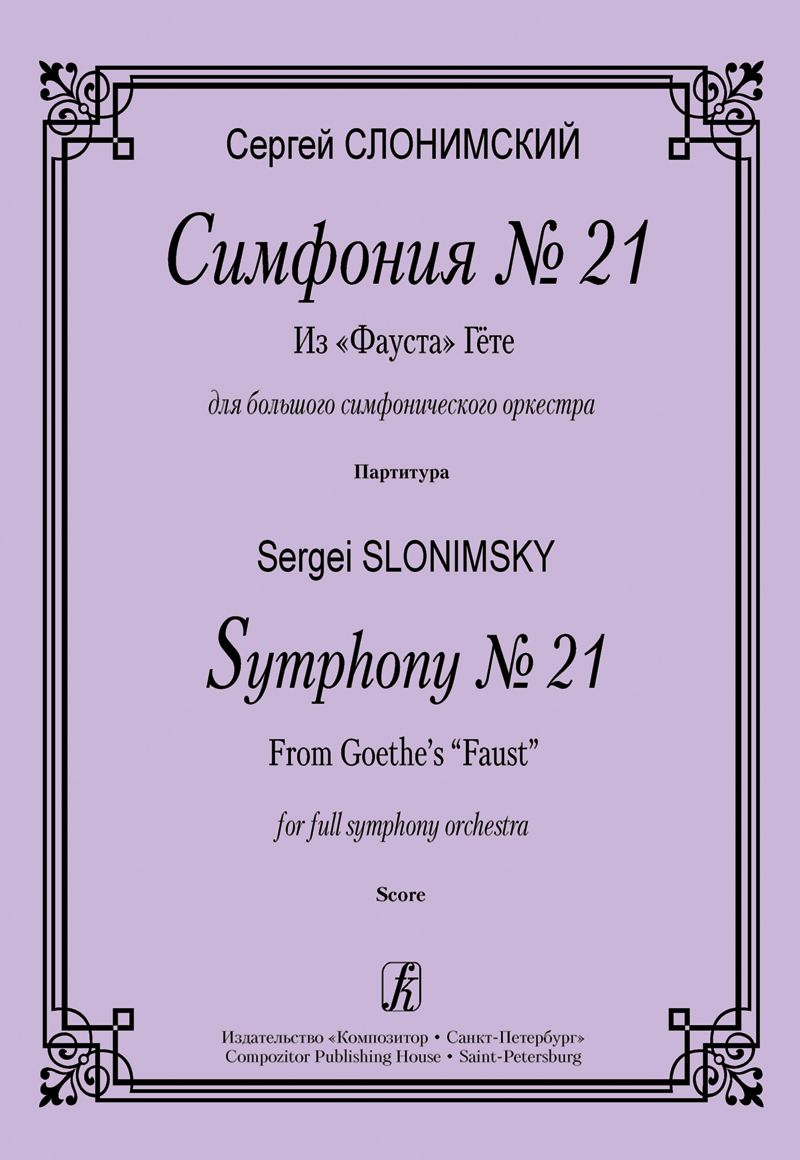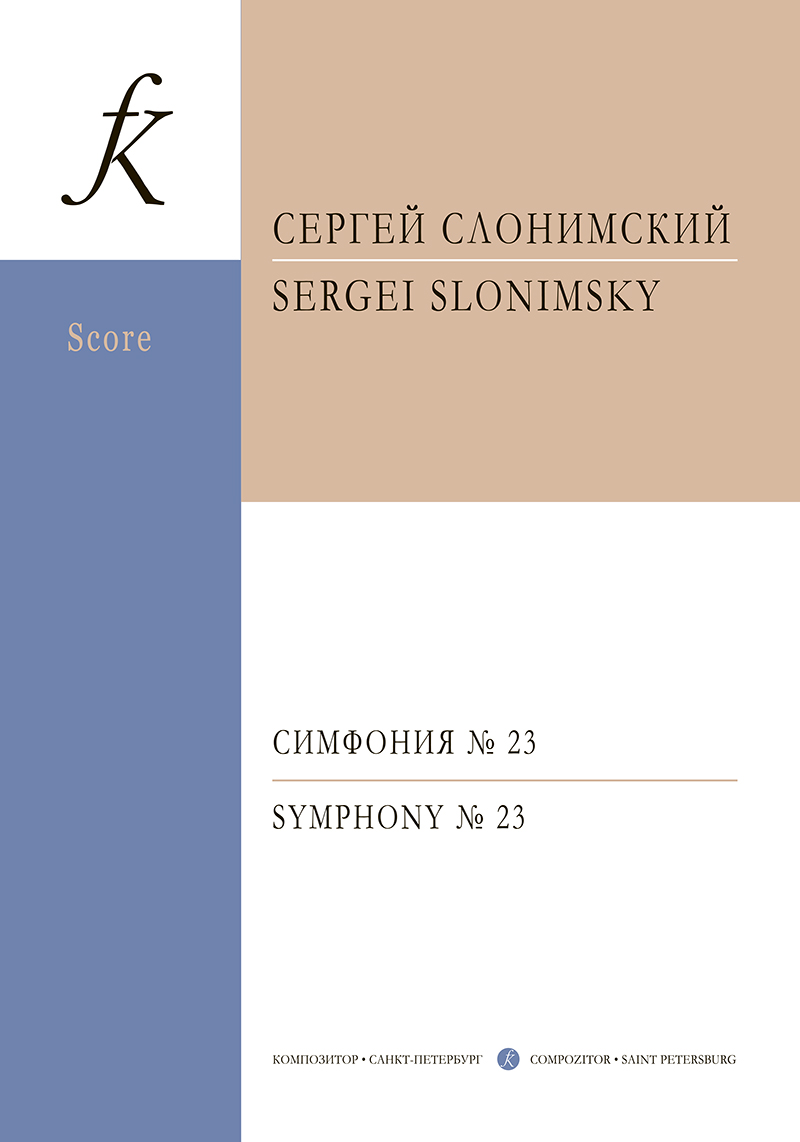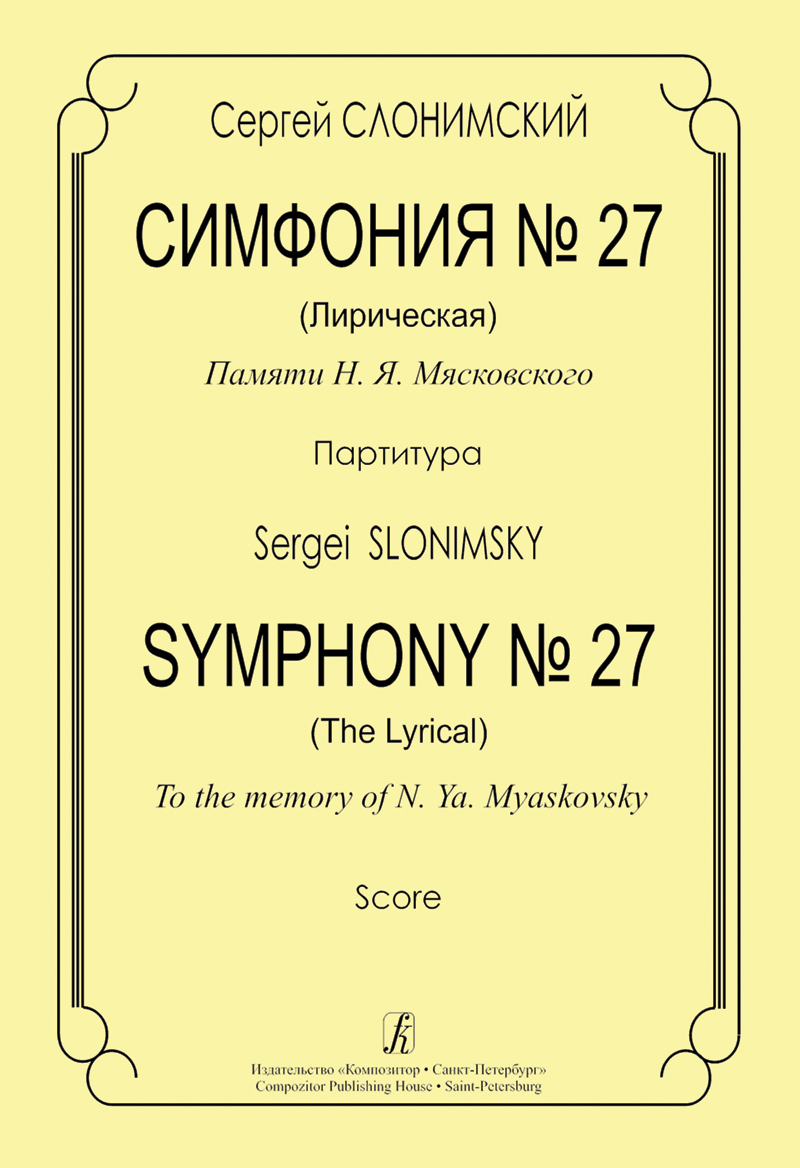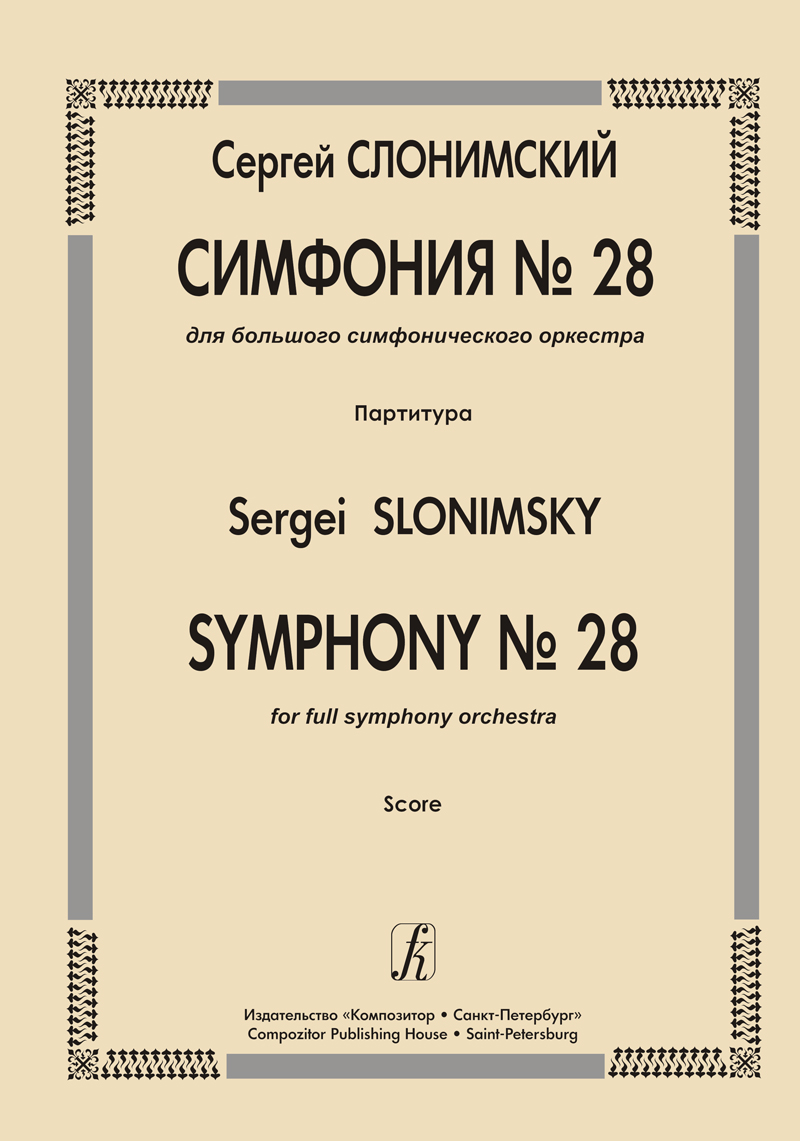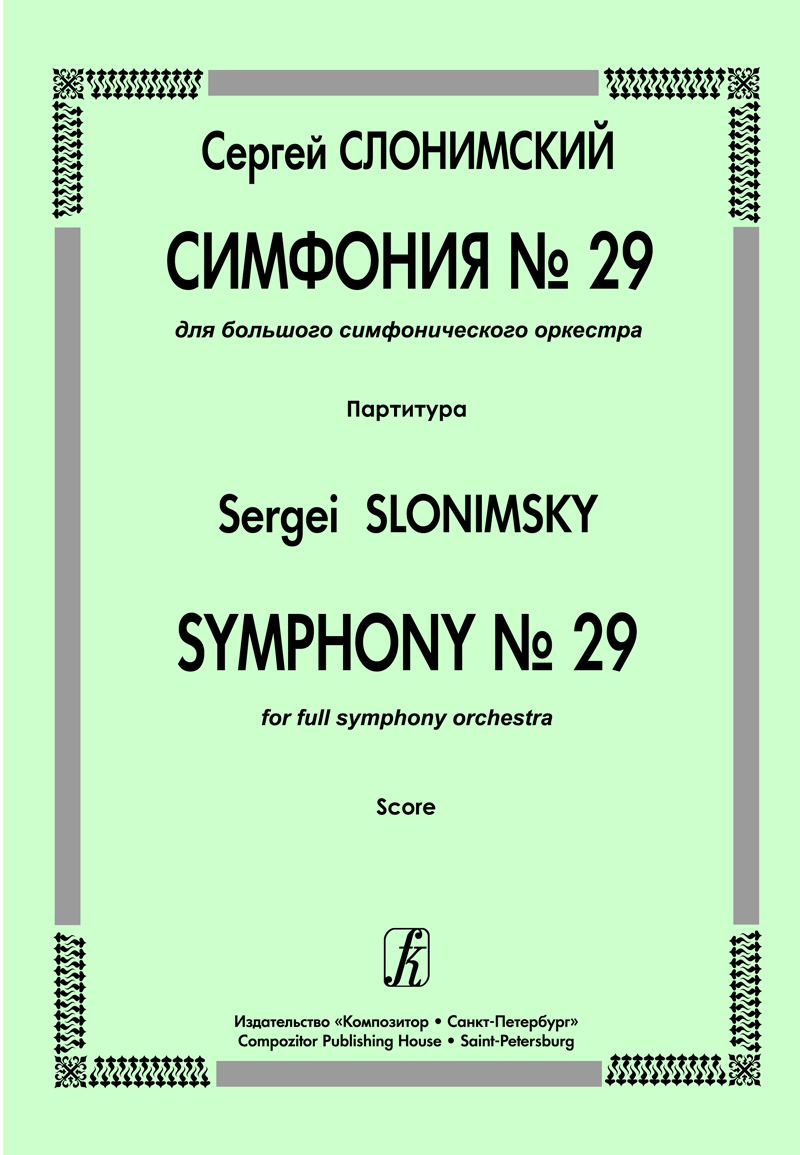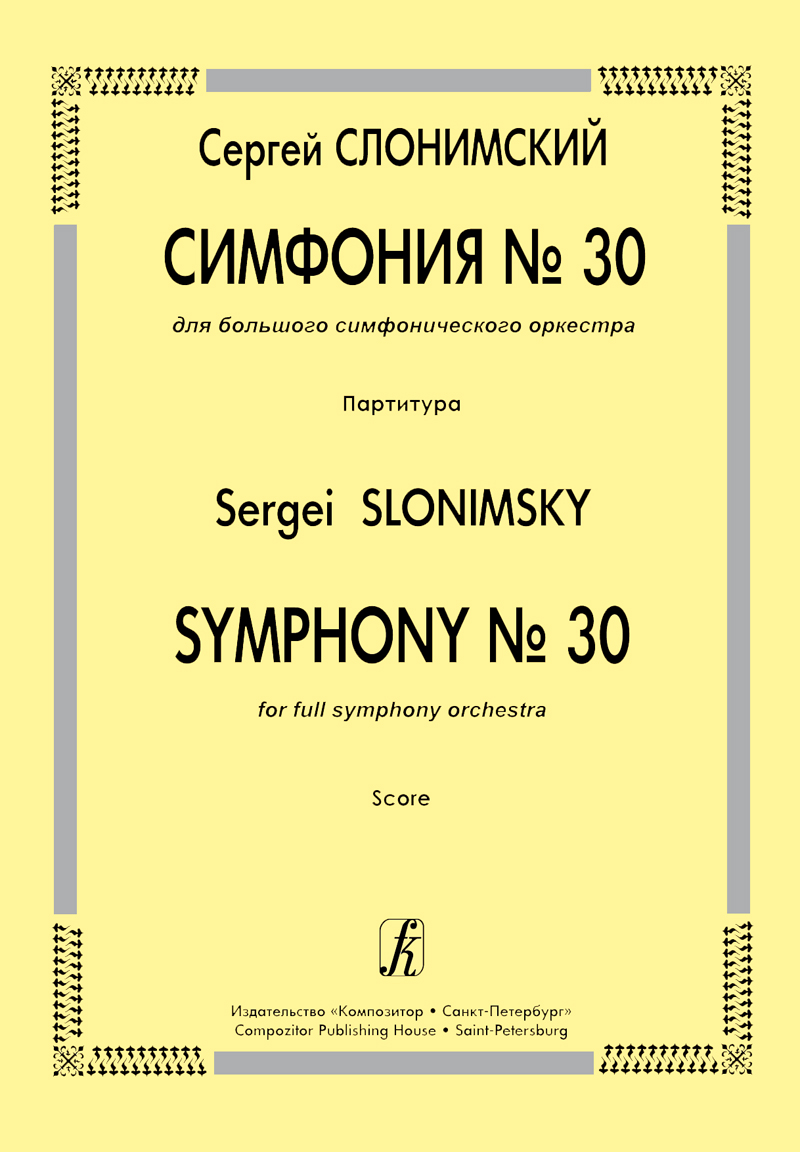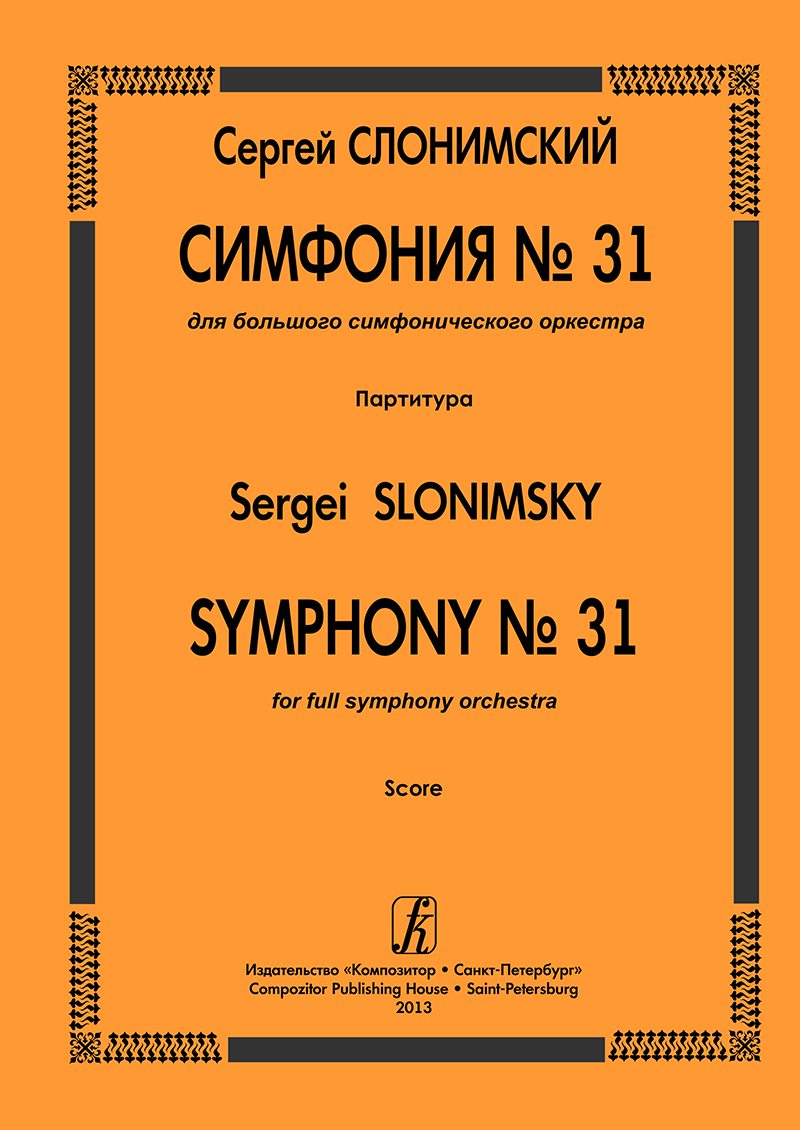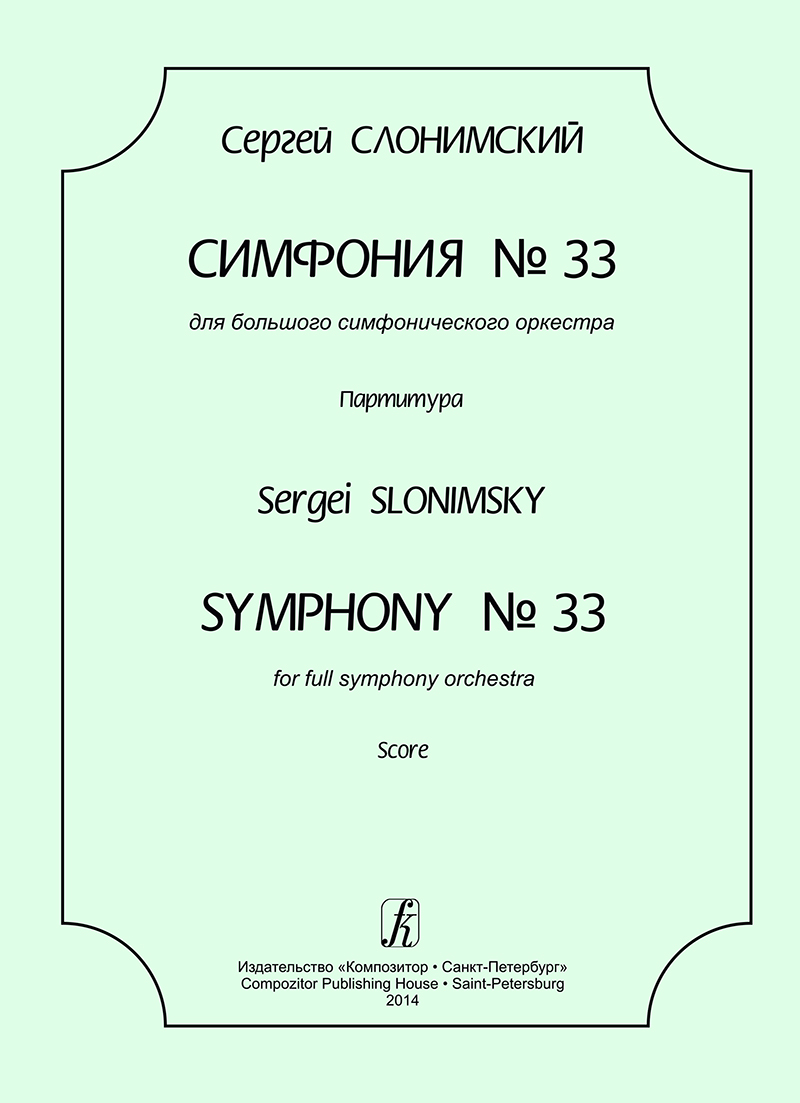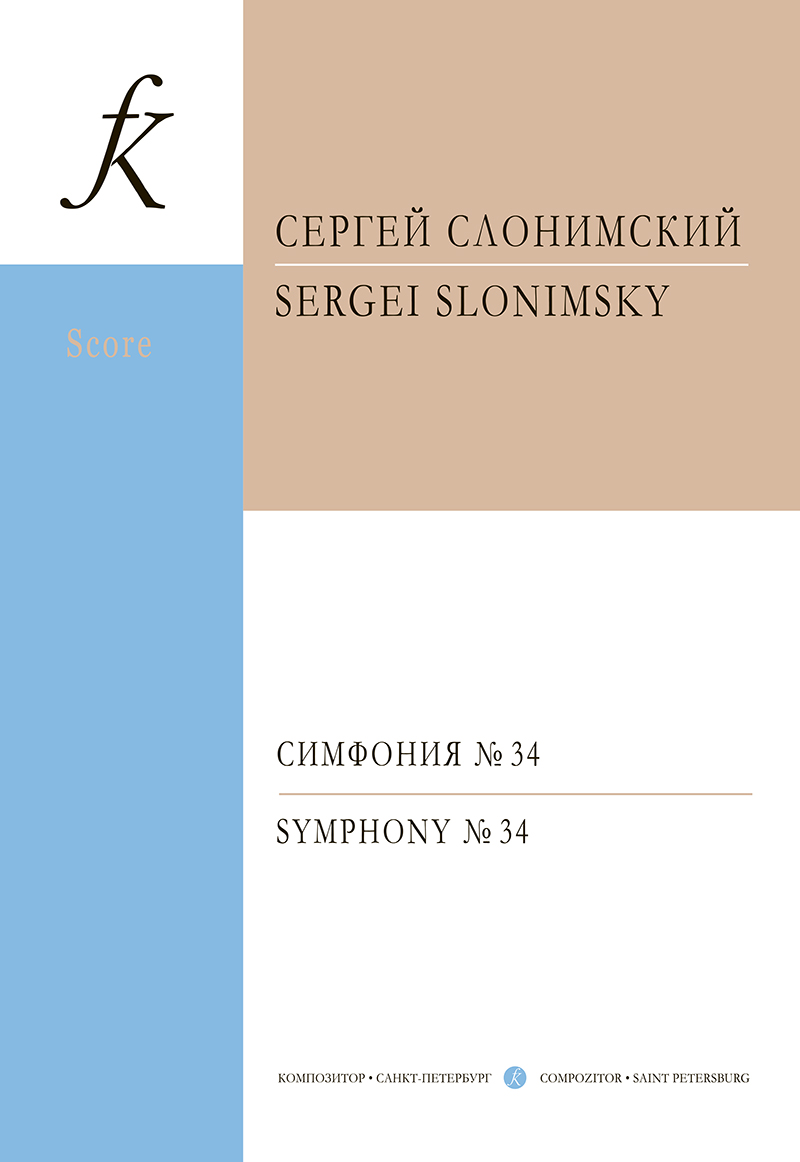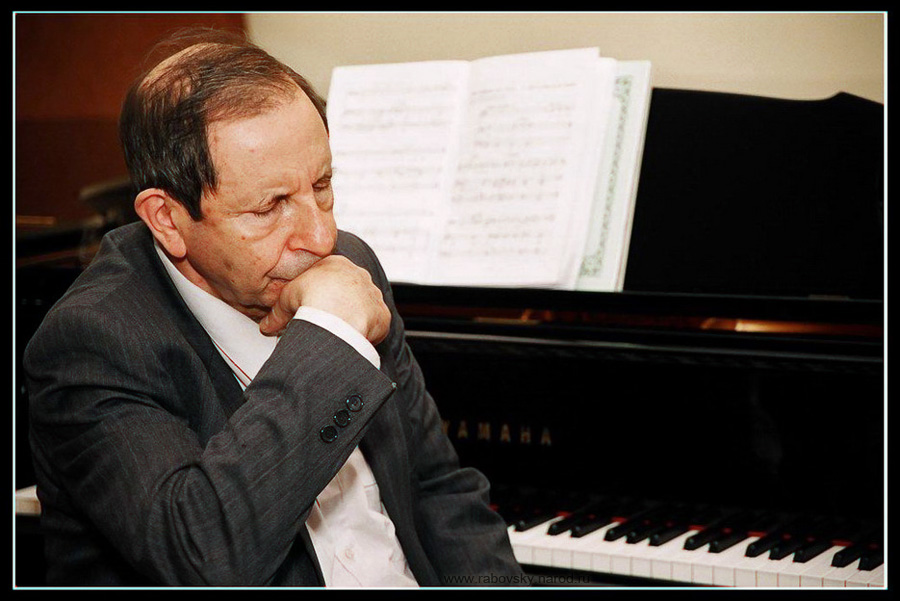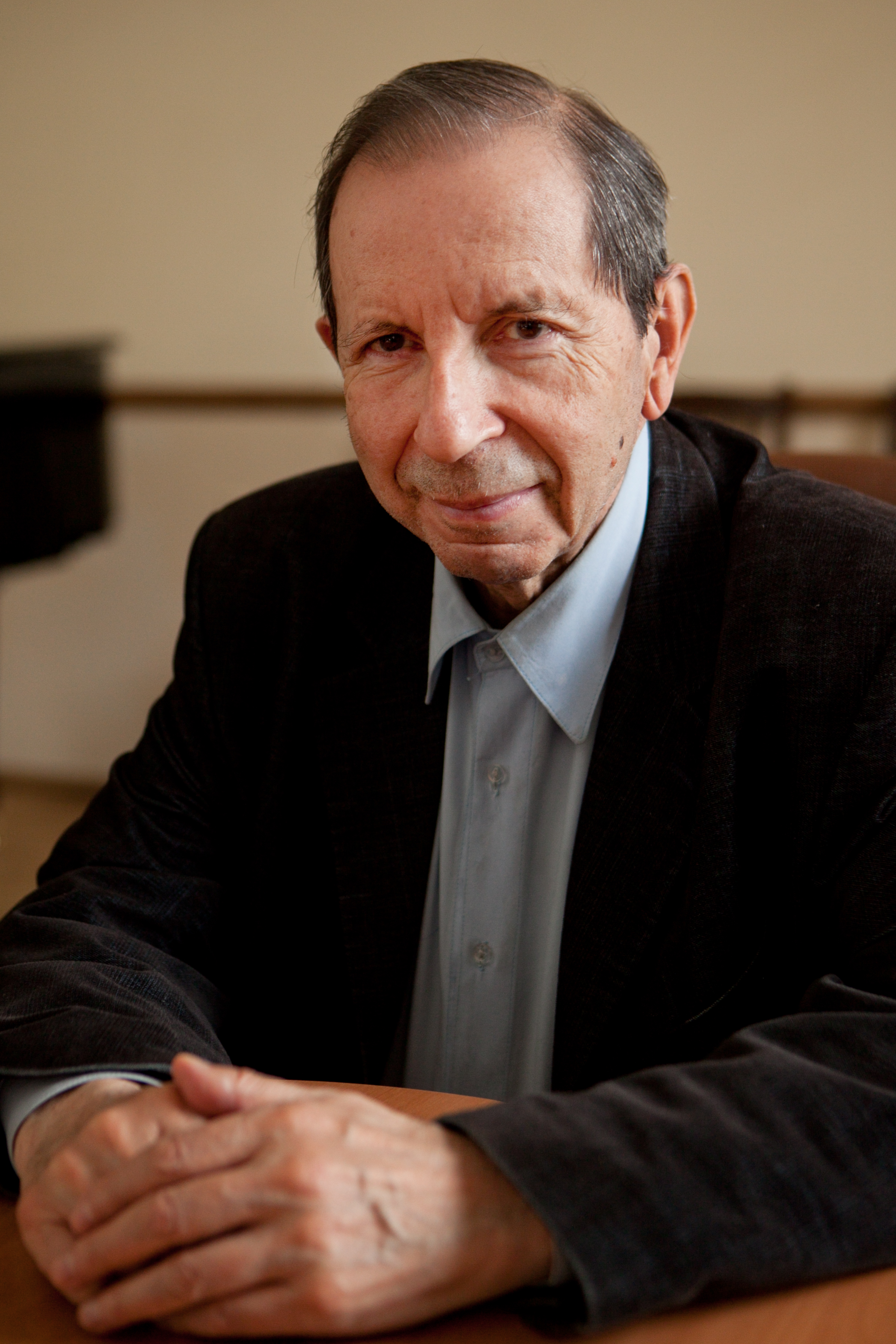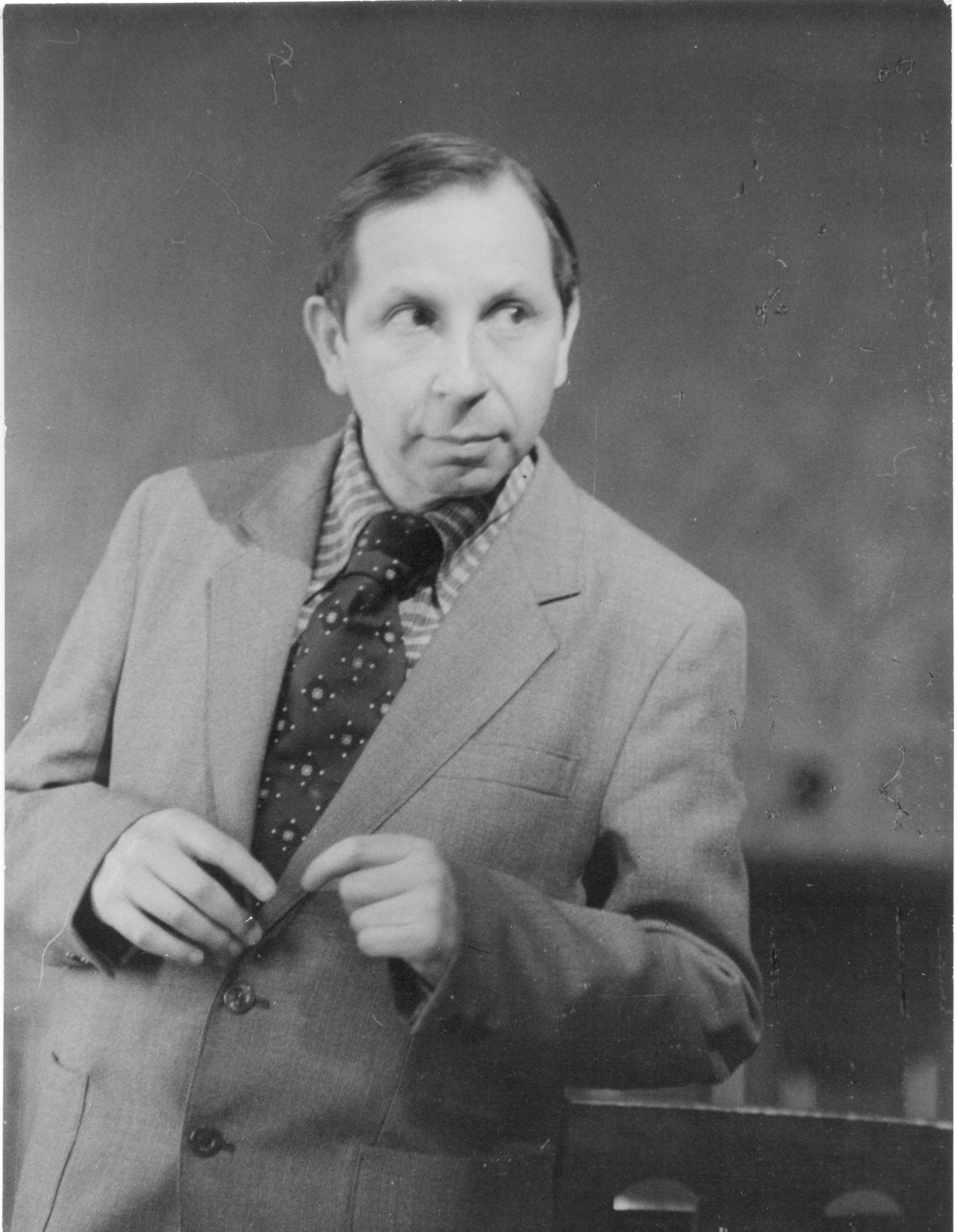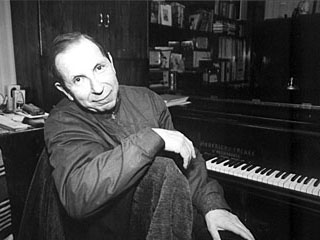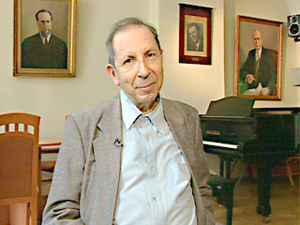SLONIMSKY Sergei
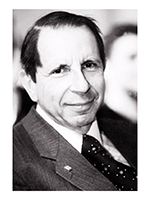 Sergei Mikhailovich Slonimsky was one of the leaders of contemporary Russian music, musicologist, pianist and the author of wide variety of works, differentiated not only by genres but also by the very music texture. He was the last awesome figure of ‘sixties’ generation of composers, the group that created new music language and stipulated further development of music creation in XX and XXI centuries.
Sergei Mikhailovich Slonimsky was one of the leaders of contemporary Russian music, musicologist, pianist and the author of wide variety of works, differentiated not only by genres but also by the very music texture. He was the last awesome figure of ‘sixties’ generation of composers, the group that created new music language and stipulated further development of music creation in XX and XXI centuries.
Sergey Slonimsky was born in 1932 in Leningrad to a highly cultivated in culture and science family. His father was a well-known writer, member of Serapion brothers group that formed the image of literary Petrograd- Leningrad of the 20th of the XX century. His uncle, Nicholas Slonimsky, St Petersburg Conservatoire graduate, became a prominent American musicologist, whose book Music Thesaurus is a Bible of the modern composer.
Slonimsky started composing at the age of 5, even before his first lessons in music school where he studied piano with Anna Artobolevskaya and composition with Sergey Volfenson. While being a kid he did not read verses but sung them, according to witnesses, so great was his unrestrainable musicality.
1930–1950th was time for discoveries, Leningrad Conservatoire – studies with his teachers, first performances and accumulation of music experiences. Among the figures that influenced his works Sergey Prokofiev stands out distinctly. He helped Slonimsky to find his own path and to feel the tradition leading back to Moguchaya kuchka (The Mighty Five) group.
Fresh melodic line and modal language, chastity of the lyricism, power of hypnotic rhythm that were Prokofiev’s magic, influenced young Slonimsky and it was not mere coincidence that his first musicological works were dedicated to his older colleague and teacher. This was his thesis on Prokofiev’s symphonies and later an essay. They are very interesting since Slonimsky’s music is akin to Prokofiev’s and key to understanding his own music is lies also in his Prokofiev’s studies.
His childhood was marred by the War and evacuation to Perm. However, there he got acquainted with classic opera and ballet during performances of evacuated Kirov (previously and now Mariinsky) theater. He spent much time with Isaya Sherman, the conductor of the theater at those times. These years meant much for development drama qualities of Slonimsky’s music. There also he got to know D. Schostakovich’s music through his famous 7th Symphony. This Symphony made a deep impression on him as a truth about War and his native city of Leningrad. Through his whole life Slonimsky carried this truth, these war and victory images and reflected them repeatedly in his works. He dedicated his 12th Symphony to Leningrad Academic Orchestra, the co-author and the first performer of the 7th. His ballade ‘To Zhukov’s death’ on I. Brodsky verses became the sole music work bearing dedication to this legendary and controversial military commander, it read: ‘to the savior of the Motherland’.
Also during war years the first contacts were made with Moscow teachers by whom he later studied in Central Special music school – Eugen Messner and Vissarion Shebalin. Here young Slonimsky came to love Grieg’s music and ever since his musical language forever acquires the Northern Grieg’s tint. Also, Grieg’s pure lyric style will later blossom in Slonumsky’s lyric episodes as well – for example in Opheila’s theme from Hamlet opera. Having returned home Slonimsky continued his studies in Leningrad Special Music school by Samariy Savshinsky (piano) and Boris Arapov (composition). Secretly he studied censored ‘The Lady Makbeth of Mzensk’ and deeply understood the genius of Shostakovich.
In 1950 Slonimsky entered the Leningrad Conservatoire, which he graduated from in 1955, both as a pianist and as a composer and where he later taught himself. His teachers were – Orest Evlakhov (composition), Nikolay Rubtsov (expert in the folk music field), Israel Finkelstein (orchestration) and others.
Slonimsky’s whole genius is characterized by the variety of styles he could write his music masterly. He studied wide range of epochs and styles – from Slavonic monody to Luigi Nono’s and Xenakis’ avant-garde - via Debussy, Webern, etc. – and could write in any style, from dodecaphony to neo-romanticism.
Slonimsky not only wrote 34 symphonies, 4 operas and many other works, he also is the ‘father’ (like another Leningrad- St Petersburg maître, Boris Tischenko) of his own ‘school’. He taught for many years in his favorite place, St Petersburg Conservatoire and being very good at teaching and liking youth he brought up some significant young names.
He is awarded not only with Russian State awards like National Glinka Award but also a cavalier of Polish Commander’s Cross because due to his Polish ancestors Slonimsky was very much into Polish culture where he also is not considered an outsider..
Sergey Slonimsky left our world on February 9, 2020 leaving behind a huge gaping hole not likely to be filled in the nearest future. His figure is emblazoned on the St Petersburg city musical landscape forever.
Main Works:
Oratorial opera after Sophocles' tragedy “Antigone” (2006) (Score and compressed score)
Musical drama “Virineya” (1965–1967)
Chamber opera “Master and Margarita” (1970–1972)
Opera-ballad “Mary Stuart” (1978–1980) to Ya. Gordin's libretto
Dramma per musica “Hamlet” (1990–1991) to W. Shakespeare's tragedy translated by B. Pasternak
Dramma per musica King Lear (2000–2001) to W. Shakespeare's tragedy. Translated by B. Pasternak. Piano score
Opera “The Visions of Ioann Grozny” (also published Suite from the same name opera. Score)
Suite from the Ballet “Magic Nut”. For full Symphony Orchestra. Score
Symphonic Chant. For winds, strings, percussion, two harps and two balalaikas. Score
31 Symphonys:
Cantatas (among them “The Voice From the Choir” (1962–1963) Verses by Alexander Blok, “One Day of Life” (1998) To the text “Chapter of Thousand” from “Dhammapada”)
Oratorio “The Hour of Courage”
Instrumental Concertos (among them for piano — Score, Piano Score, for organo and string orchestra, for violin, for viola, for cello), and also:
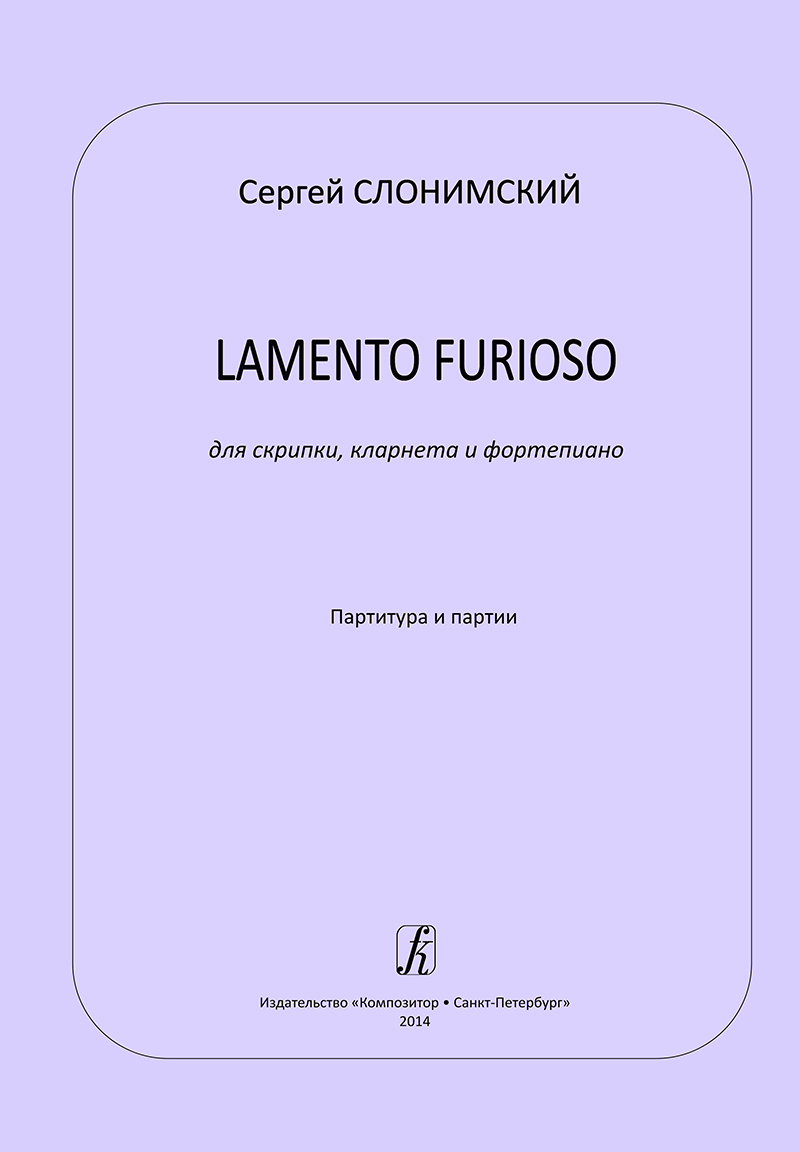 |
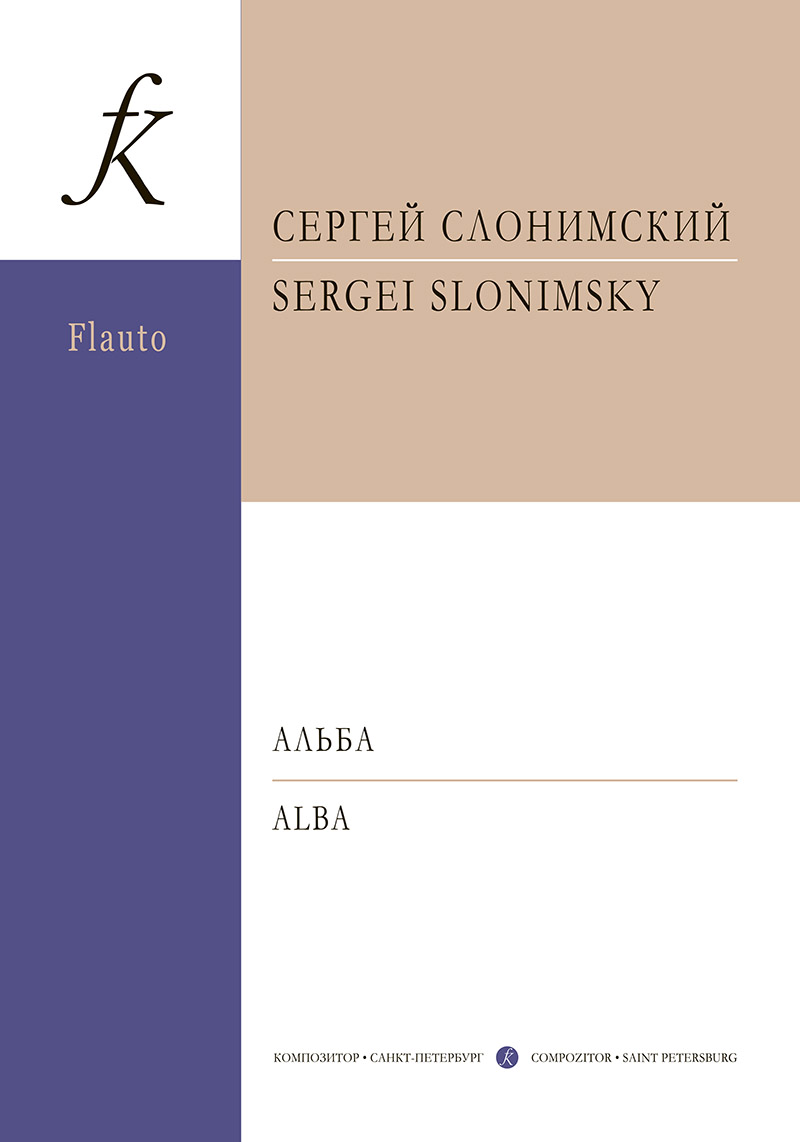 |
 |
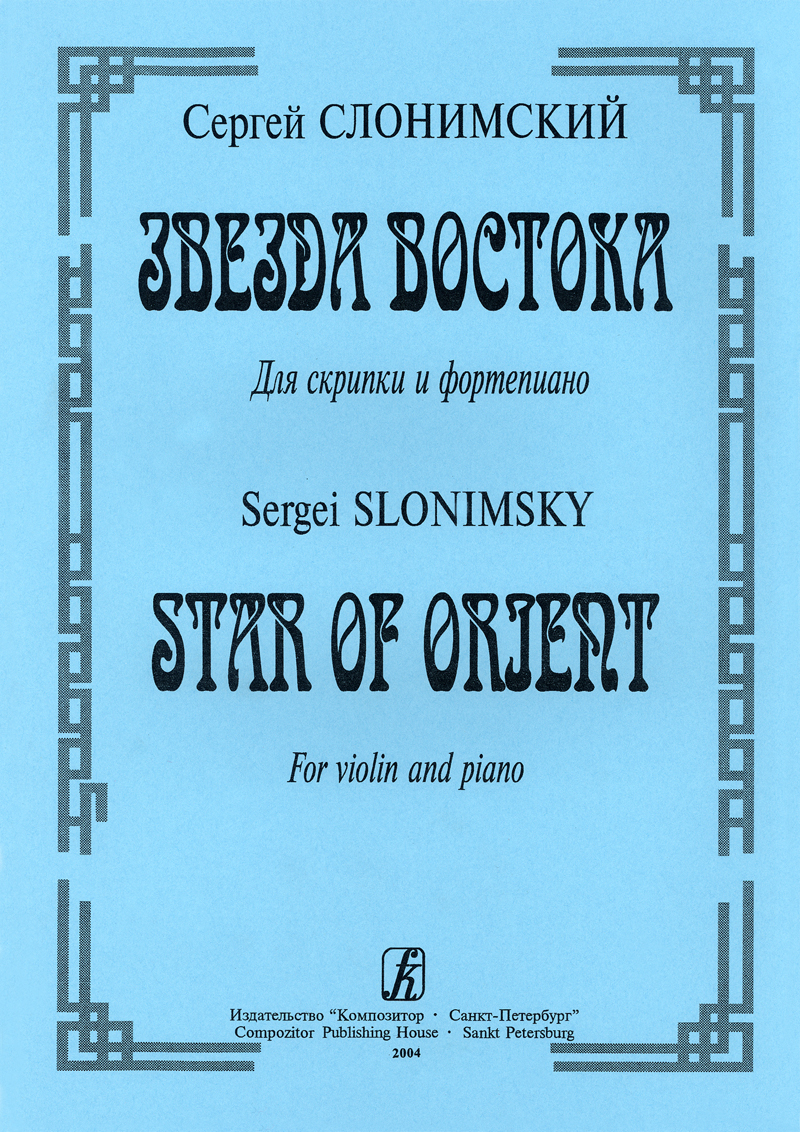 |
|
Lamento furioso For violin, clarnet and piano |
Alba For flute or violin and piano |
Burlesque For Hautboy and piano |
Star of Orient For violin and piano |
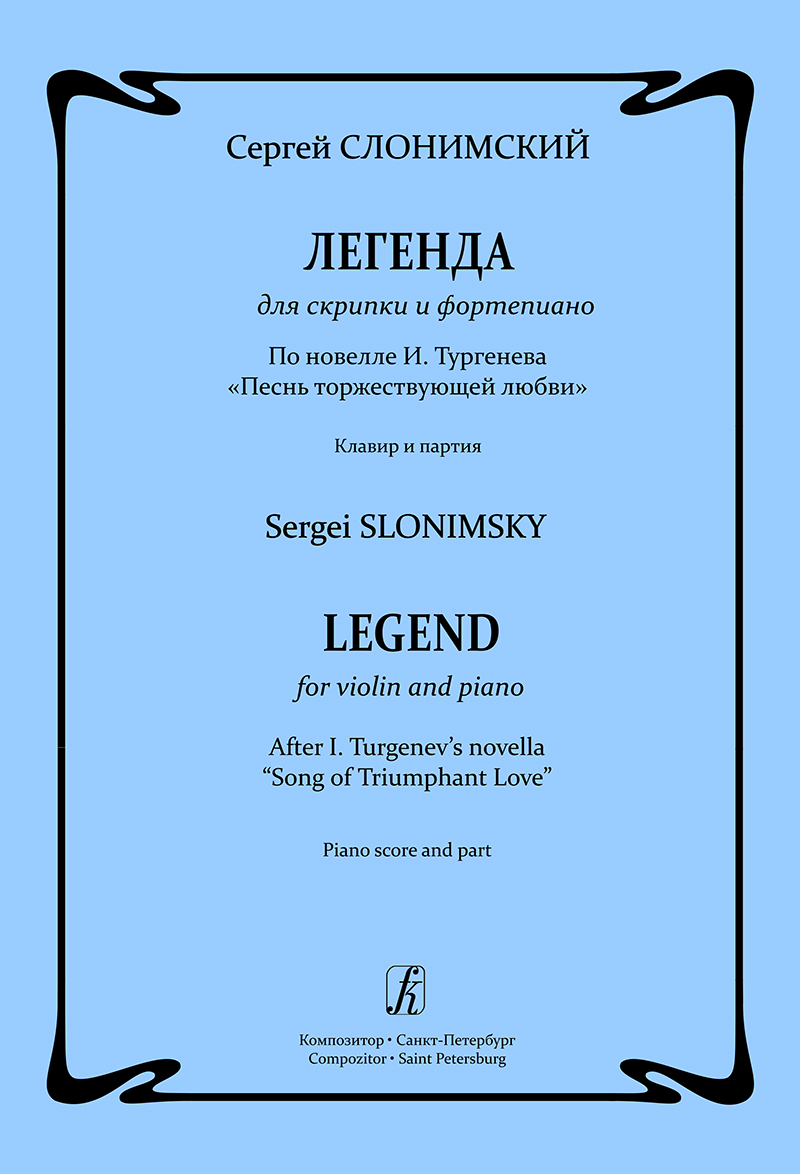
|

|

|
 |
|
Legenda For violin and piano |
Monologue and Toccata For clarinet and piano |
Nocturne. Concert Waltz For violin and piano |
Pieces For for marimbaphone and xylophone |

|

|

|

|
|
Sonata. Monody For violin and piano |
Sonata For cello and piano |
Suite For viola and piano |
Three Graces Suite for viola and piano |
 |
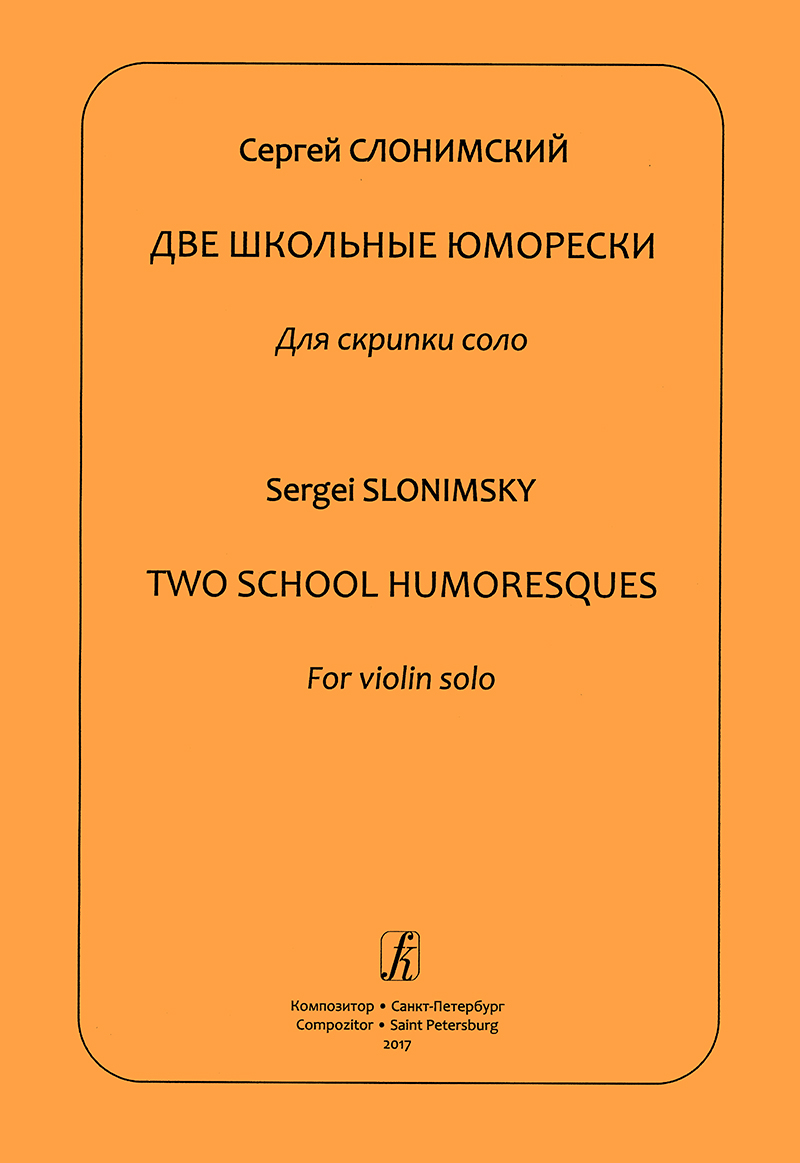
|

|
 |
|
Jewish Rhapsody For piano, strings, flute and percussions |
Two School Humoresques For violin and piano |
Three Concert Pieces For Harp |
Jewish Rhapsody Piano Score |
|
|
|
|
|
Piano Music (for two and four hands), Works for Choir (among them — for children's choir), many vocal (songs and romances) works.
And also:
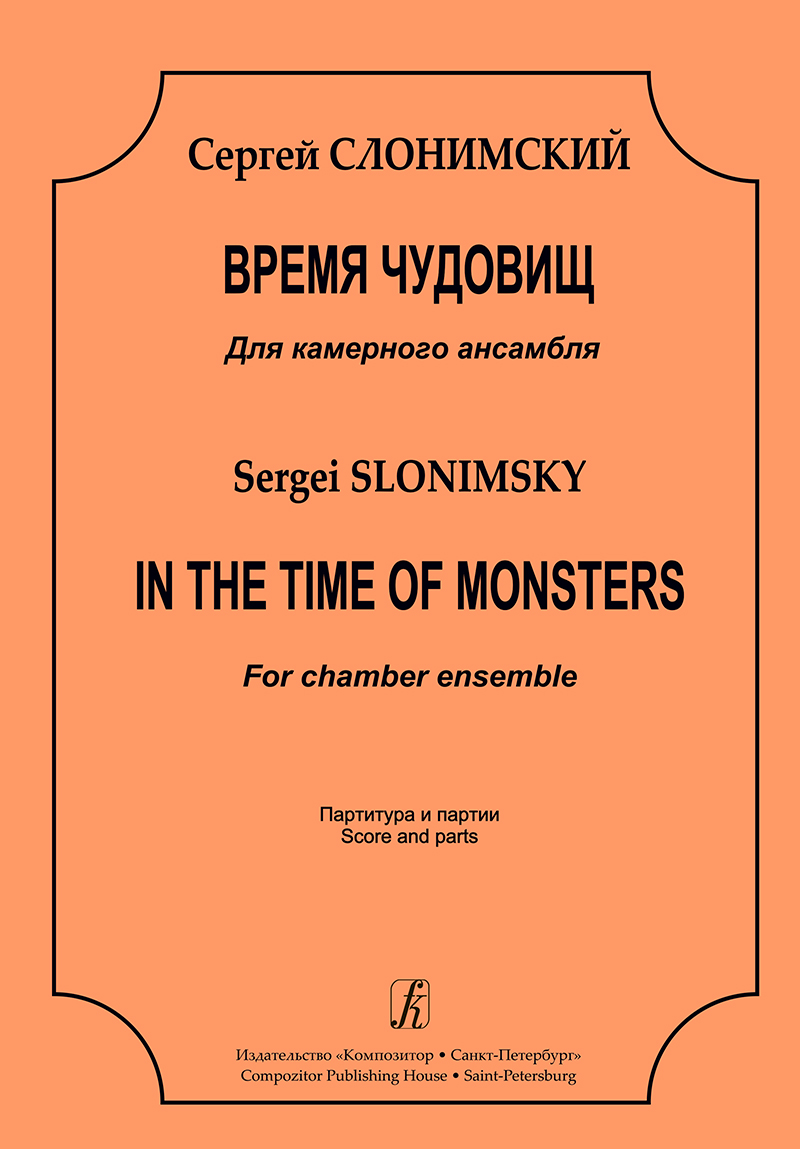 |
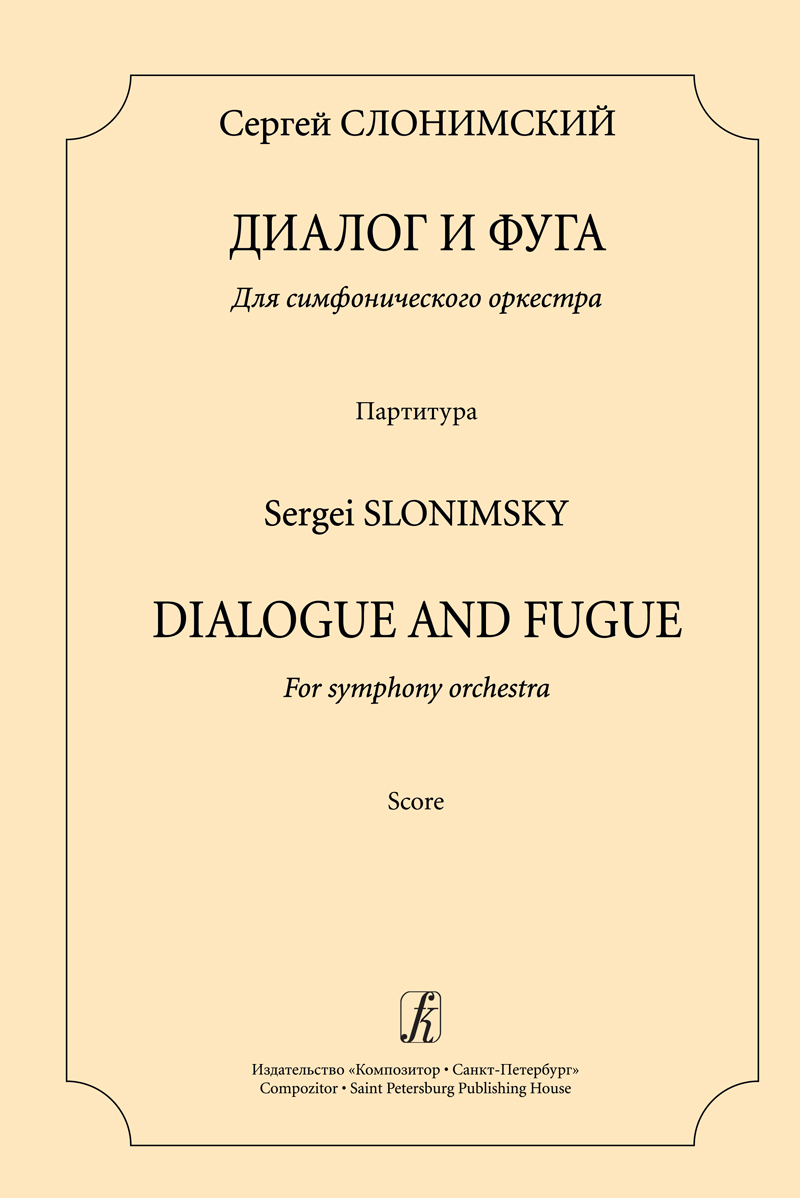 |
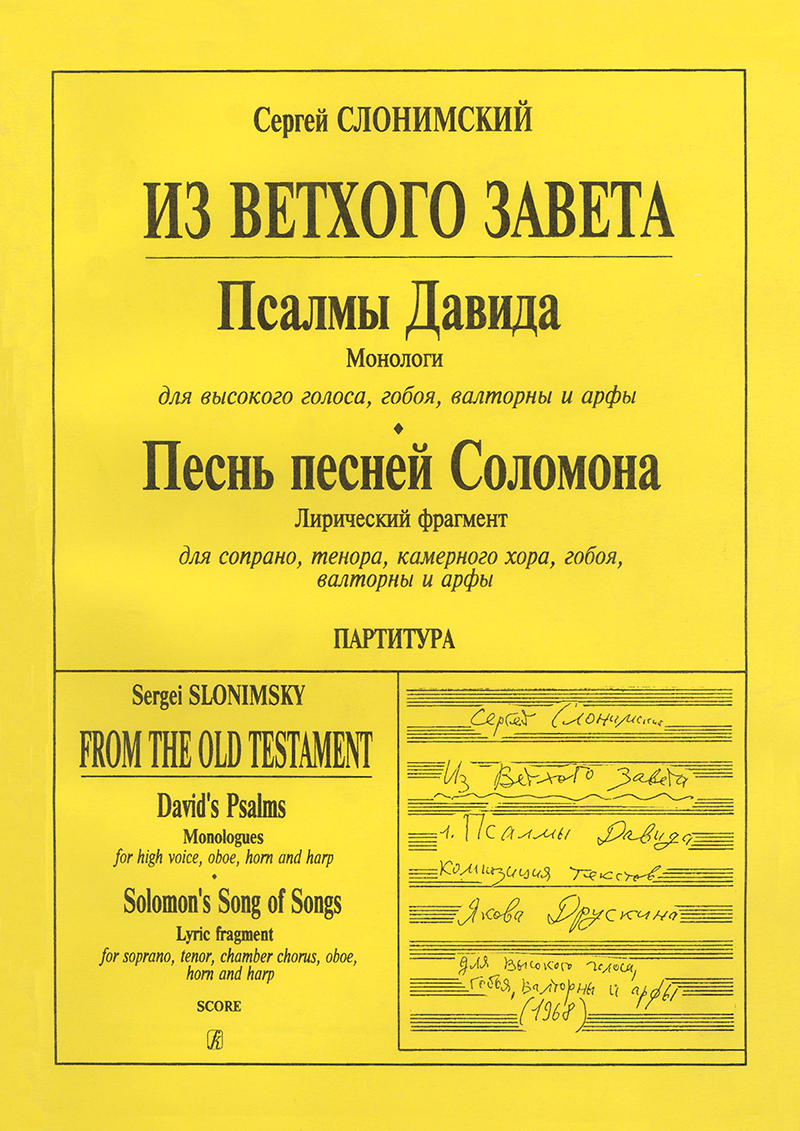 |
 |
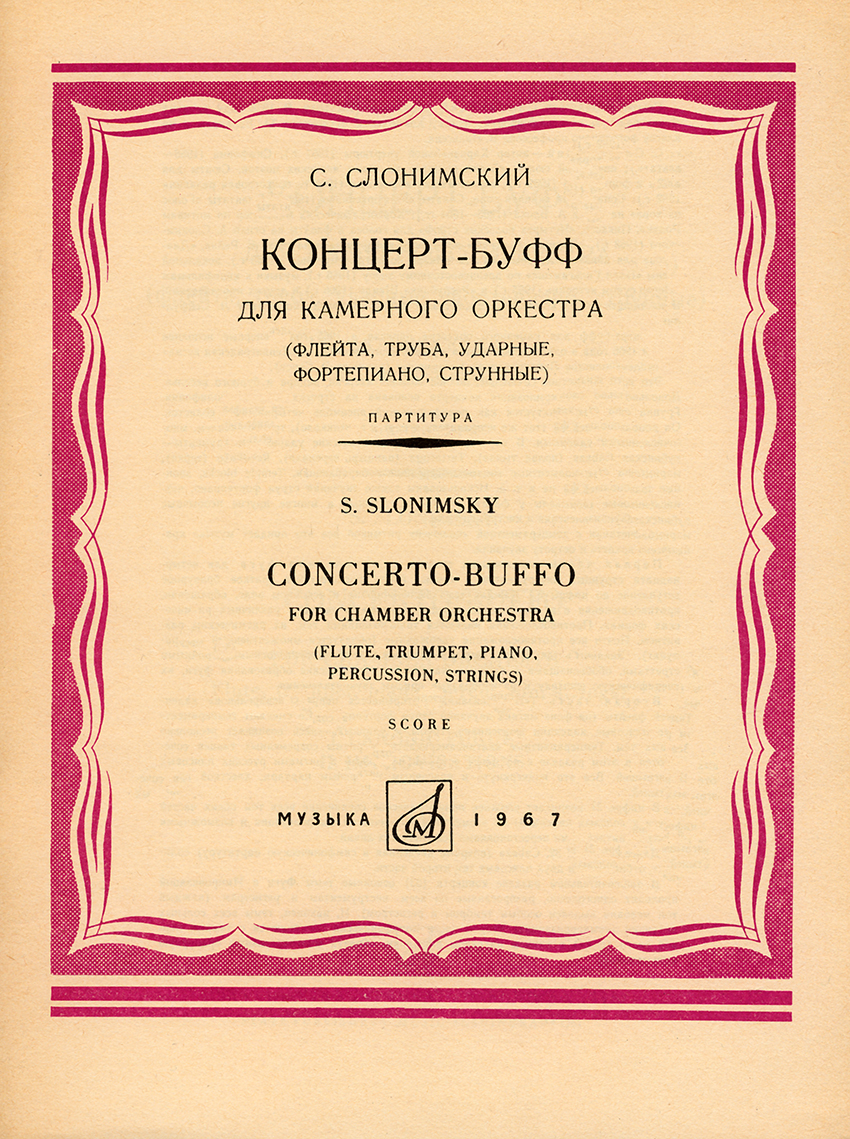 |
| In the time of Monsters For Chamber Ensemble | Dialogue and Fugue For symhony orchestra | From the Old Testament Score | Quintet Score | Concerto-Buffo For Chamber Orchestra |
 |
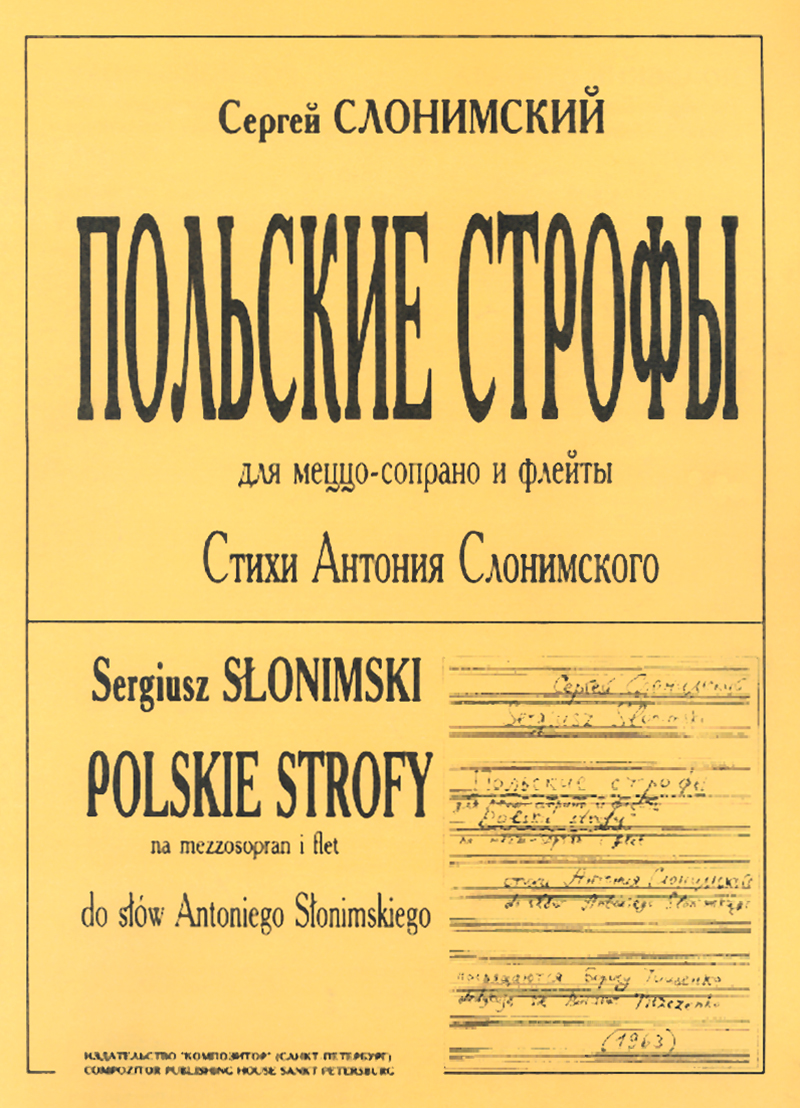 | 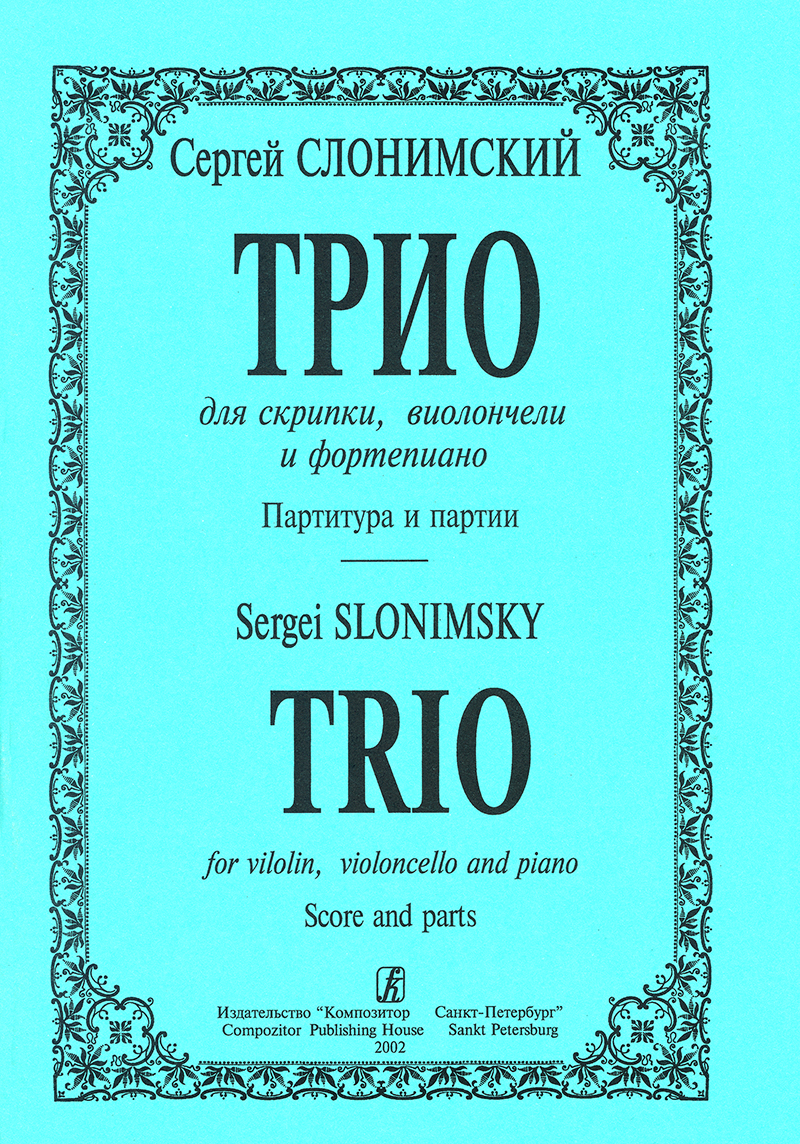 |
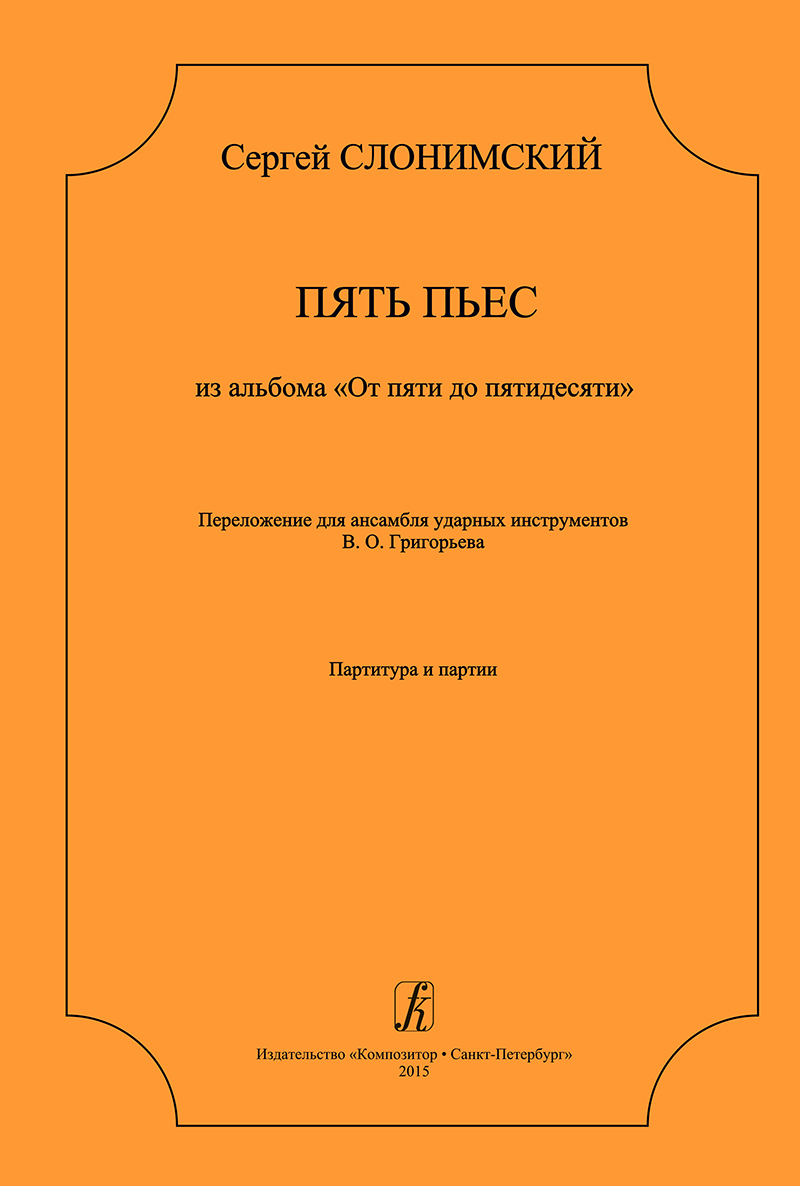 |
 |
| Petersburg's Visions Score | Polish Lines For mezzo-soprano and flute | Trio For violin, cello and piano | 5 Pieces from the Album “From Five to Fifty” For percussion ensemble | Symphoniette Score |
|
|
|
 | 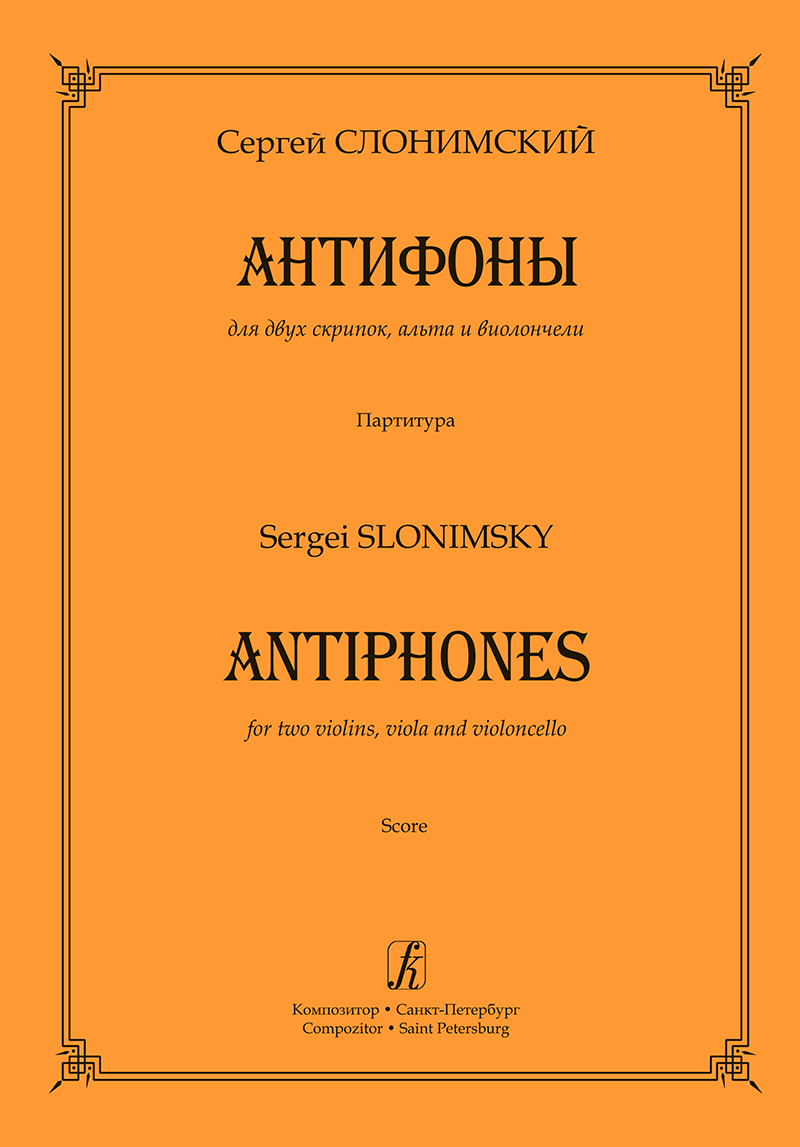 |
|
|
| Russian Tunes and Oriental Scherzo Trio № 2 for violin, violoncello and piano |
Antiphones For 2 violins, viola and violoncello |
|
Music on CD:
The Visions of Ioann Grozny. Overture. Slavonian Concerto for Organ and String Orchestra
Sergei Slonimsky to Children. Pieces for piano. Performed by the author
Vocal Compositiona to the verses by A. S. Pushkin and M. Yu. Lermontov
Books by Sergei Slonimsky:
Burlesques, Elegies, Dithyrambs (2000)
Melodic Elements Science. Basic educational course for conservatoires and music colleges (2018)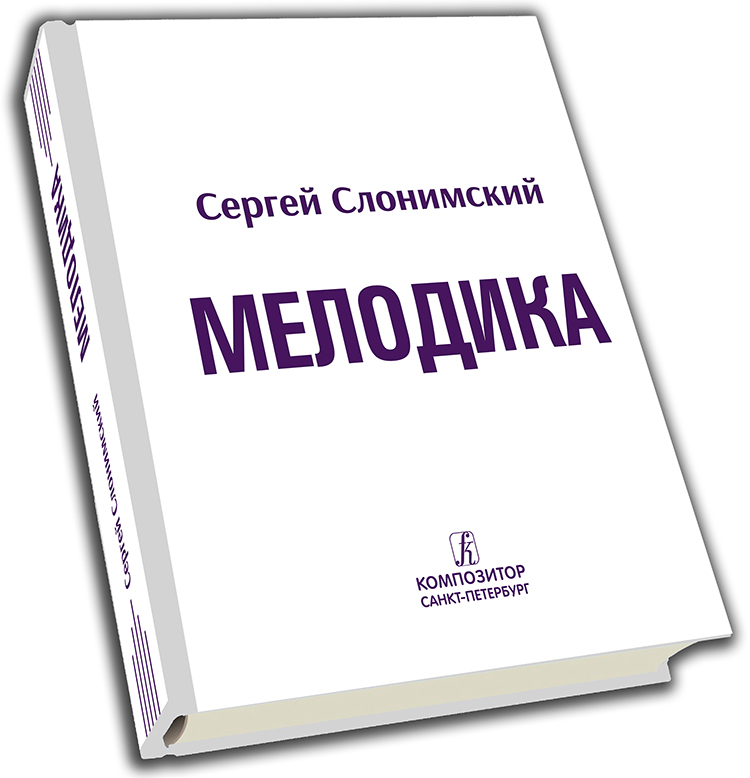
Thoughts of the Composer's Skill (2006)
About Chopin's Innovations. To the 200th anniversary of Fryderik Chopin's Birthday (2010)
Paradoxes of the Modern Music and Modern Life (2017)
Practical Harmony. Educational aid
Free Dissonance. Essays about the Russian music (2004)
Liszt and His Creative Image: Scrutinizing Out of the 21st Century (2010)
Thinking of the 3rd Avantgarde and the Ways of Music Today (composer's notes) 2014
Books about Sergei Slonimsky:
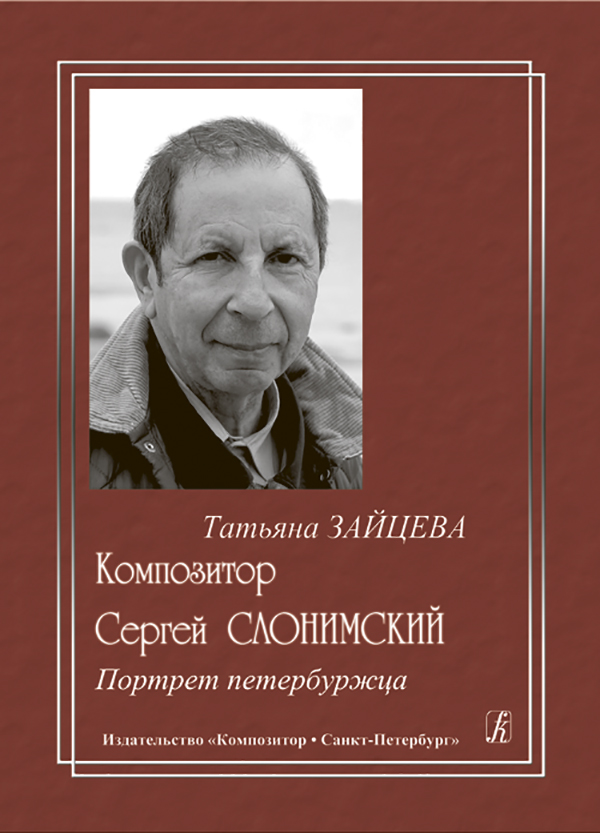 | 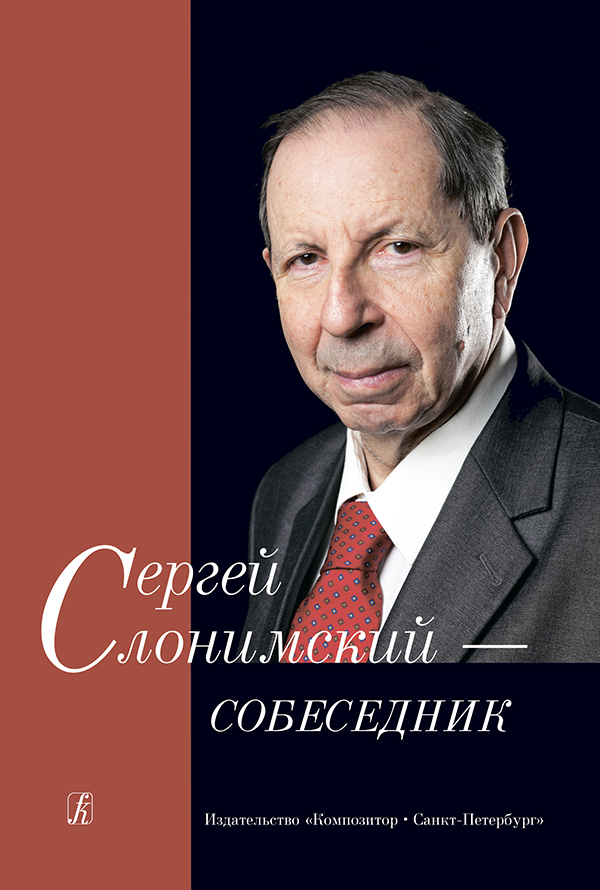 | 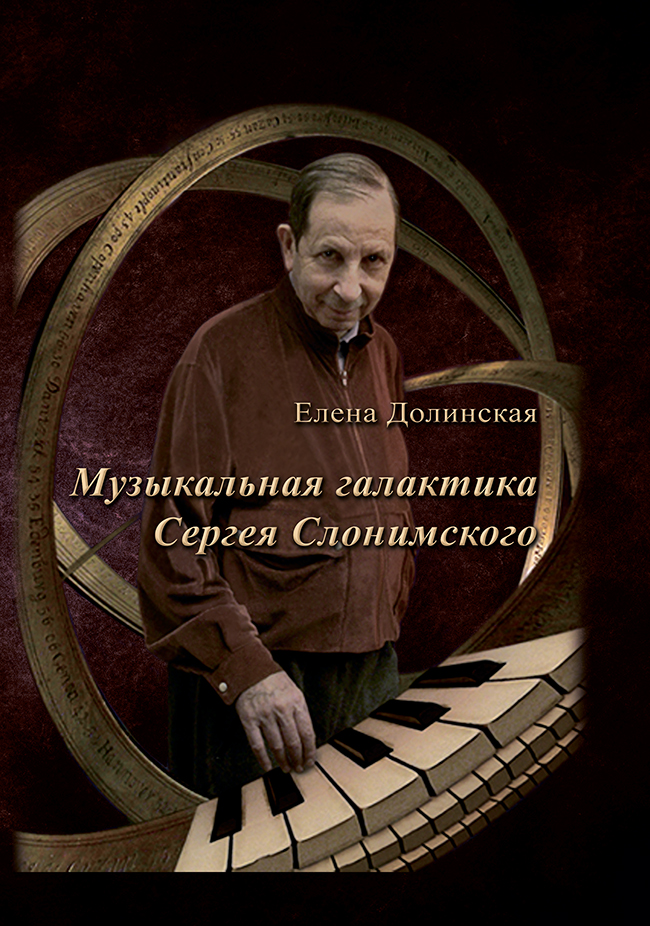 |
| Zaitseva T. Composer Sergei Slonimsky Portrait of the Petersburgian | Sergei Sloimsky — Interlocutor Dolinskaya E. Ed. & comp. | Dolinskaya E. Music Galaxy of Sergei Slonimsky |

